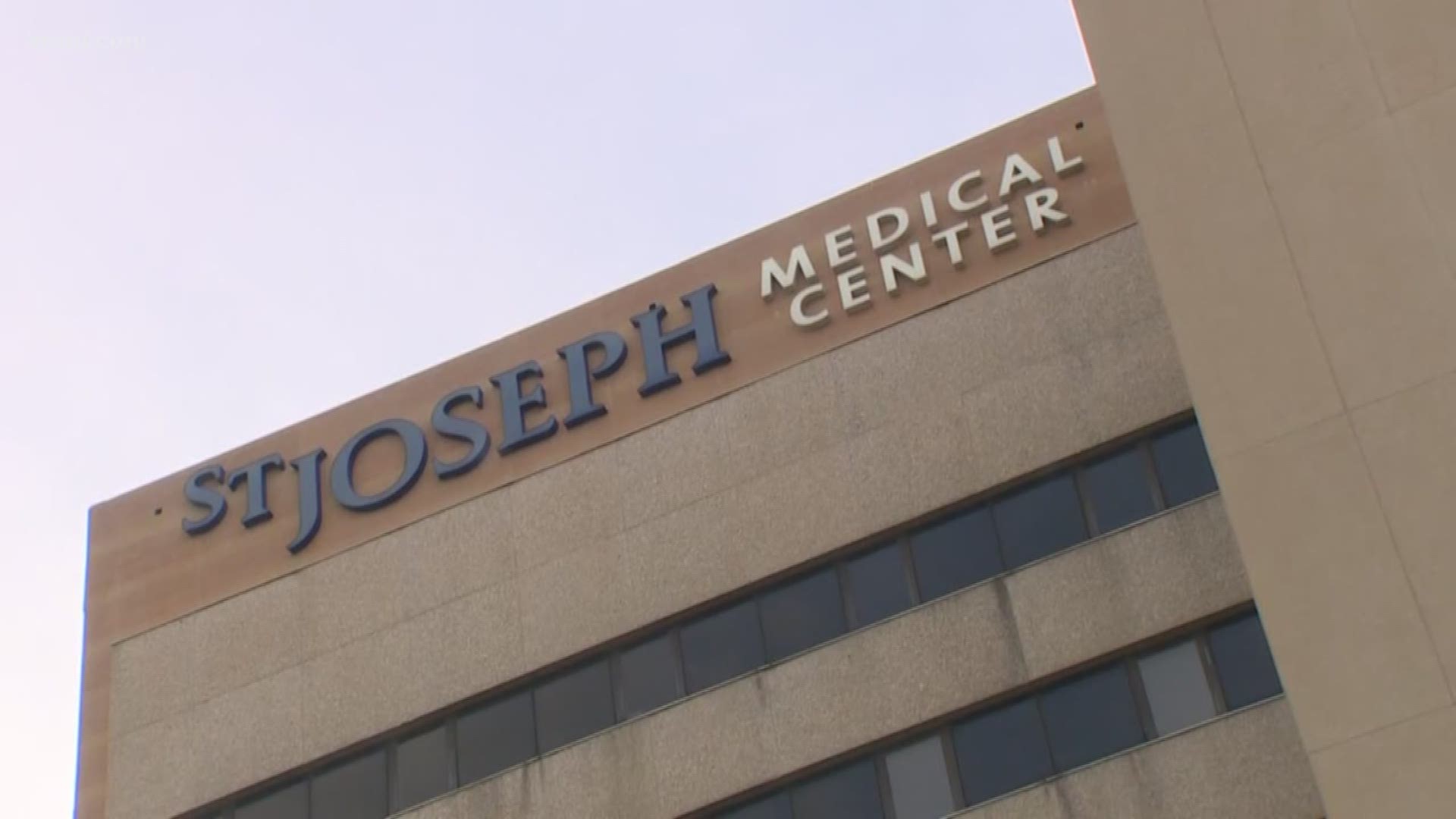HOUSTON — A homeless man who tested positive for COVID-19 was treated and released from St. Joseph’s Medical Center. He landed back on the streets of Houston.
Harris County officials said it’s a situation they're trying to prevent.
There were homeless advocates who knew about the man and were working to get him a place to stay, but the hospital released him with nowhere to go.
“It spreads so quickly, you look at the encampments that are all around town, you know one person gets it, they’re all going to get it," said Tommy Thompson, CEO of Open Door Mission in east Houston.
In this case, the homeless man was sent to the hospital last week and tested positive.
“St. Joe’s had him in the ICU for several days and now he’s been released and unfortunately, they released him to the streets,” Thompson said.
“We have been planning for a scenario where we have to house folks that test positive. Certainly the case at St. Joseph’s brought that to the forefront,” said Francisco Sanchez with the Harris County Office of Emergency Management.
KHOU 11 contacted St. Joseph Medical Center and a spokeswoman released the following statement.
"St. Joseph Medical Center continues to work closely with the City of Houston and the Houston Health Department on efforts related to COVID-19 and the greater Houston community. We are following the guidelines put in place by the CDC and the Houston Health Department for treatment and discharge of any suspected COVID-19 patient."
However, top officials at Harris County think things can be done differently.
“Right now, we have some folks that have tested positive that are homeless that are in hotels, so that’s the approach we are taking now," Sanchez said.
Back at the Mission, there’s already a Harris County clinic on-site.
“It’s exactly what I’ve wanted for years," Thompson said.
The nonprofit agreed to lease nine of its beds to the county with the option to expand to 28.
Thompson said it gives the homeless a place to stay who are recovering, not just from the coronavirus.
“When people get released from Ben Taub, LBJ hospital, St. Joe’s, whatever, they need a place to go to rehabilitate, not back to the streets," Thompson said.
County officials said they’re looking into finding housing options for other people who need a place to quarantine away from family. They predict there could be more people looking for a room, not just the homeless.
Open Door Mission said they're accepting donations of masks and other personal protective equipment for healthcare workers. Click here for contact information.
*UPDATE*
After this story aired on the night of March 23, 2020, St. Joseph's released an additional statement the following day:
“St. Joseph Medical Center would never release a patient from our care without an appropriate and documented discharge plan in place. We have always ensured, and will continue to ensure, that a safe discharge plan is established and agreed upon before we will release any patient from our facility into the care of others. This is for the continued safety of a patient and the entire community.”
Coronavirus symptoms
The symptoms of coronavirus can be similar to the flu or a bad cold. Symptoms include a fever, cough and shortness of breath, according to the Centers for Disease Control.
Most healthy people will have mild symptoms. A study of more than 72,000 patients by the Centers for Disease Control in China showed 80 percent of the cases there were mild.
But infections can cause pneumonia, severe acute respiratory syndrome, kidney failure and even death, according to the World Health Organization. Older people with underlying health conditions are most at risk.
The CDC believes symptoms may appear anywhere from two to 14 days after being exposed.
Human coronaviruses are usually spread through...
- The air by coughing or sneezing
- Close personal contact, such as touching or shaking hands
- Touching an object or surface with the virus on it, then touching your mouth, nose or eyes before washing your hands.
Help stop the spread of coronavirus
- Stay home when you are sick.
- Eat and sleep separately from your family members
- Use different utensils and dishes
- Cover your cough or sneeze with your arm, not your hand.
- If you use a tissue, throw it in the trash.
Lower your risk
- Wash your hands often with soap and water for at least 20 seconds. If soap and water are not available, use an alcohol-based hand sanitizer.
- Avoid touching your eyes, nose, and mouth with unwashed hands.
- Avoid close contact with people who are sick.
- Clean and disinfect frequently touched objects and surfaces.
- If you are 60 or over and have an underlying health condition such as cardiovascular disease, diabetes or respiratory illnesses like asthma or COPD, the World Health Organization advises you to try to avoid crowds or places where you might interact with people who are sick.
Get complete coverage of the coronavirus by texting 'FACTS' to 713-526-1111.

